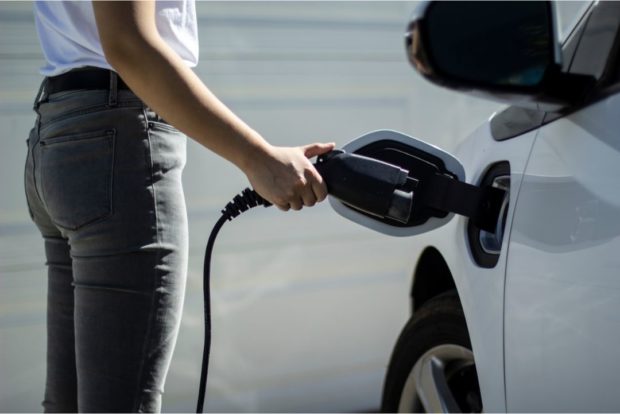Zero tariffs for imported hybrid cars pushed
Five foreign chambers of commerce are pushing for the inclusion of hybrid cars in the government’s plan to implement a five-year zero duty scheme on imported electric vehicles, citing the importance of its inclusion in the new tax policy expected to be approved soon by President Marcos.
“First of all, we applaud the government for these initiatives. It’s the first country in Asean (Association of Southeast Asian Nations) to allow zero import duty on foreign electrical vehicles. The reason we bring it up is because we also want to include hybrid cars and not only from Asia or Asean but also from Europe,” European Chamber of Commerce of the Philippines president Lars Wittig said at a press conference last week.
Acts as bridge
For his part, Bradley Norman, president of the Australia-New Zealand Chamber of Commerce of the Philippines, said: “It would certainly be great if it applied to hybrid as well because that tends to be the bridge between full fossil fuel mode of vehicles to electric vehicles. Some of us are not quite sure about electric vehicles (EVs) and would go with hybrids.”
American Chamber of Commerce of the Philippines (AmCham) executive director Ebb Hinchcliffe also echoed the sentiment of the two, citing the wide use of hybrid cars, citing Sri Lanka in particular, where he said most people are using hybrid cars.
“Until we have the ability to manufacture EVs in the country, then for sure we should be able to have zero import duty on all [electric] vehicles coming in. And I just wish it had been [for] hybrids,” the AmCham official said.
Article continues after this advertisementBoth Korean Chamber of Commerce of the Philippines (KCCP) oresident Joseph Um and Nobuo Fujii, vice president of the Japanese Chamber of Commerce and Industry of the Philippines Inc. (JCCIPI), also agreed that hybrid cars should be covered by the zero import duty.
Article continues after this advertisement“Electric vehicles need to (come in) with the infrastructure, like the charging stations and everything. So, you cannot only drive in Makati and Metro Manila. So, I think hybrid and all these combinations (would be) a good start in changing from combustion engine (vehicles) to electric cars,” the KCCP president said.
“Japanese automotive companies (are) concentrated on hybrid vehicles. EVs? Not so,” Fujii said for his part, adding that Japanese carmakers were still catching up with European makers in the area of pure electric vehicles.
In the Philippines, the electrified vehicle segment is composed mostly of hybrid electric vehicles (HEVs) based on sales data from the Chamber of Automotive Manufacturers of the Philippines, Inc. (CAMPI) and the Truck Manufacturers Association (TMA).
In 2021, the market share of electrified vehicles was at 0.31 percent, equivalent to 810 units. Of these,777 units, or 96 percent are (HEVs).
Before the pandemic, in 2019 in particular, the total share of HEV’s was even higher at 98 percent.
